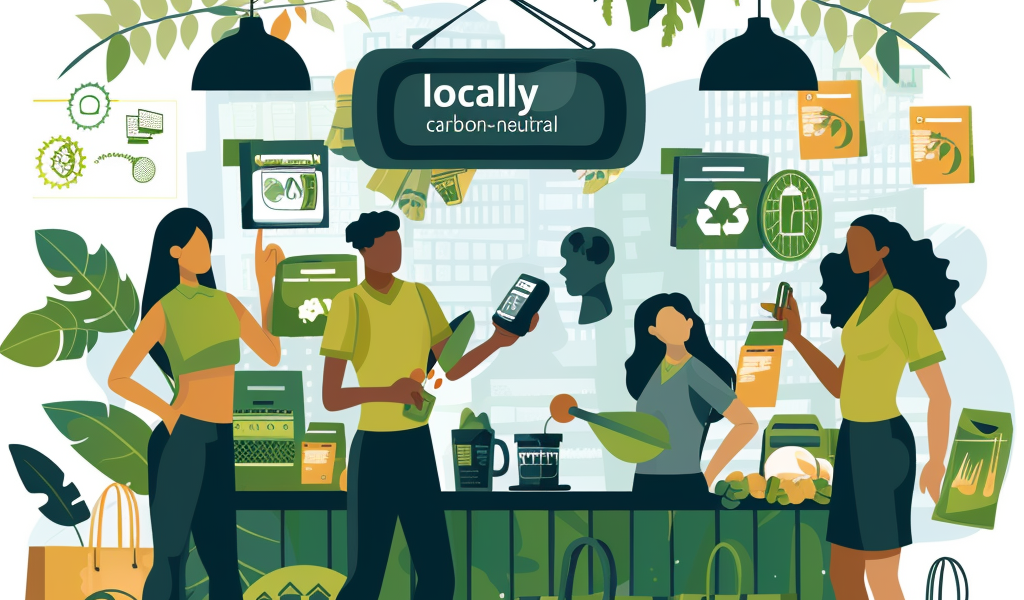Retail Sector Faces Urgent Need for Sustainable Practices Amid Rising Consumer Expectations
The retail industry is currently grappling with the pressing need for sustainability, a challenge that has become increasingly complex amid rising consumer expectations and regulatory pressures. Companies in sectors such as fashion are experiencing intense scrutiny from stakeholders, particularly regarding their environmental impact. A staggering 96% of emissions in the retail sector fall under Scope 3, which includes indirect emissions from the supply chain. For home and retail brands, this figure rises to an alarming 98%. Despite the urgency of the situation, many sustainability teams remain underfunded and find themselves primarily focused on educating other departments instead of implementing actionable initiatives.
To effectively pursue Net Zero goals and adhere to evolving regulations, businesses must weave sustainability into every facet of their operations—from raw material sourcing and product design to marketing and supply chain management. This holistic approach necessitates targeted upskilling in crucial areas such as carbon accounting, sustainable procurement, and stakeholder management. Establishing robust communication protocols, cross-departmental key performance indicators (KPIs), and accountability measures is essential for fostering a culture of sustainability within organizations.
One notable example of a company taking proactive steps toward sustainability is Puma. The sportswear giant is collaborating with financiers and suppliers to create meaningful change within its supply chain. The challenge lies in the fact that companies often lack direct control over their suppliers’ operations, data-sharing practices, and behaviors. To address this, Puma is pioneering innovative business models aimed at aligning incentives across its supply chain.
Puma’s initiative involves partnerships with a coalition of financiers, including BNP Paribas, HSBC, and the International Finance Corporation (IFC). By leveraging supply chain finance linked to sustainable practices, Puma is incentivizing suppliers to meet specific sustainability standards. Achieving these standards can unlock significant benefits for suppliers, such as preferential interest rates, tiered financing options, and enhanced access to working capital. This program has expanded to cover 72 suppliers and has seen a remarkable increase in total supply chain financing—from $100 million in 2016 to $800 million in 2022. This growth underscores the importance of value chain collaboration in driving decarbonization efforts and demonstrates how financial and operational expertise can converge to tackle supplier engagement challenges.
The integration of sustainability across the entire organization is a critical priority for many companies. It is imperative that businesses not only acknowledge the environmental impact of their operations but also take concrete steps to mitigate it. This requires a shift in mindset, where sustainability is viewed not merely as a compliance issue but as a strategic opportunity for growth and differentiation in the marketplace.
Moreover, the retail sector must recognize the importance of transparency and communication in its sustainability initiatives. Customers are increasingly demanding to know the origins of the products they purchase and the ethical practices of the brands they support. By fostering an open dialogue about sustainability efforts, companies can build trust and loyalty among their consumers.
As the landscape of retail continues to evolve, businesses must remain agile and responsive to emerging trends and consumer preferences. This includes embracing technological advancements that can enhance sustainability efforts. From AI-driven analytics that optimize supply chain efficiency to blockchain technology that ensures traceability in sourcing, the integration of technology can play a pivotal role in achieving sustainability goals.
In addition to technological innovations, collaborations among industry players can amplify sustainability efforts. By forming partnerships and coalitions, companies can share best practices, resources, and insights that drive collective progress. This collaborative spirit can lead to the development of industry-wide standards and frameworks that facilitate sustainable practices across the board.
Ultimately, the path to sustainability in retail is not without its challenges. However, by embedding sustainable practices into the core of their operations and fostering a culture of accountability and innovation, companies can not only meet regulatory requirements but also enhance their overall business performance. As the demand for sustainable products and practices continues to rise, those who prioritize sustainability will likely find themselves at a competitive advantage in the marketplace.
In conclusion, the retail sector stands at a critical juncture where the integration of sustainability is not just a moral imperative but a business necessity. Companies that proactively address their environmental impact and engage in meaningful collaborations will be better positioned to thrive in an increasingly conscious consumer landscape.





